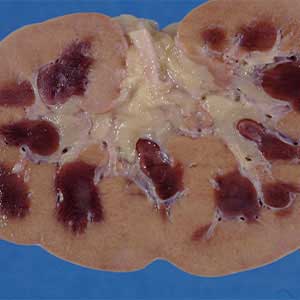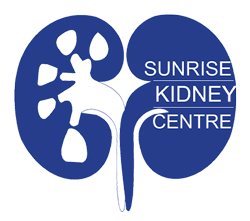Acute Kidney Failure treatment in Vijayawada
Understanding a little on what is acute kidney disease (AKD)
Acute kidney disease, often referred to as acute kidney injury (AKI), is a sudden loss of kidney function that occurs within hours or days, leading to the accumulation of waste products in the blood and an imbalance in body fluids and electrolytes. It can be caused by a variety of factors, including reduced blood flow to the kidneys (pre-renal), damage to the kidney tissue (intrinsic), or obstruction of urine flow (post-renal). Common risk factors include dehydration, sepsis, certain medications, and existing kidney disease. Prompt diagnosis and management are crucial, as untreated AKI can progress to chronic kidney disease or total kidney failure. Acute Kidney Failure treatment in Vijayawada typically involves addressing the underlying cause, potentially incorporating measures such as fluid management, medication adjustments, or in severe cases, dialysis to support kidney function while recovery occurs.
What can cause AKD ?

Acute kidney disease (AKD) is characterized by a rapid decline in kidney function, and its main causes can be categorized into prerenal, intrinsic renal, and postrenal factors. Prerenal causes as per Kidney doctor in Vijayawada, accounting for about 60-70% of cases, arise from conditions that reduce blood flow to the kidneys, such as dehydration, heart failure, or severe blood loss. Intrinsic renal causes involve direct damage to kidney tissues, often due to acute tubular necrosis from toxins, infections, or ischemia. Postrenal causes stem from obstruction of urinary outflow, which can result from kidney stones, enlarged prostate, or tumors. Other factors contributing to AKD needing nephrology treatment in Vijayawada include severe infections, certain medications, and systemic illnesses, such as diabetes and hypertension.
Identifying AKD, Symptoms:
- Decreased Urine Output: Noticeably reduced urine production can indicate kidney dysfunction.
- Swelling: Fluid retention leads to swelling in the legs, ankles, or face.
- Fatigue: A general feeling of tiredness or weakness due to toxin buildup.
- Nausea and Vomiting: Gastrointestinal upset is common as waste fails to be filtered out.
- Shortness of Breath: Fluid accumulation in the lungs can cause respiratory issues.
- High Blood Pressure: The kidneys play a pivotal role in regulating blood pressure.
- Confusion: Changes in mental status may occur due to electrolyte imbalances or toxin accumulation.
- Back Pain: Pain or discomfort in the lower back can signal kidney involvement.
- Signs of Infection: Fever or chills may indicate an underlying infection affecting kidney function.
How to prevent acute kidney disease:
Acute kidney disease (AKD) can often be prevented through proactive health measures and lifestyle choices as suggested by Dr. M.V. Sai Krishna. Essential strategies include managing underlying health conditions such as diabetes and hypertension, which are major risk factors for kidney damage. Staying well-hydrated and adopting a balanced diet low in sodium, processed foods, and unhealthy fats can significantly reduce stress on the kidneys. Regular monitoring of kidney function through routine check-ups is vital for early detection of potential issues. Avoiding nephrotoxic substances, such as certain over-the-counter medications and excessive use of antibiotics, also plays a critical role in prevention. Additionally, limiting alcohol consumption and quitting smoking further protects kidney health. Overall, awareness and early intervention at Sunrise Kidney Centre are key to reducing the risk of acute kidney deterioration at Best kidney hospital in Vijayawada.
Treatment and Recovery:
Acute kidney disease (AKD) treatment focuses on addressing the underlying cause, managing symptoms, and preventing complications. Common causes include dehydration, medications, infections, or blockages, and treatment may involve administering IV fluids, adjusting medications, or treating infections with antibiotics. In some cases, dialysis may be necessary temporarily to assist with waste removal and fluid balance until kidney function improves. The duration of AKD can vary widely; some patients may recover fully in a few days to weeks, especially if the cause is identified and treated promptly. In contrast, others may face a prolonged recovery or progress to chronic kidney disease if damage is severe or if the underlying cause is not resolved. Continuous monitoring and supportive care are critical components of managing AKD to optimize recovery and overall kidney health.
Lets look into some frequently asked questions with respect to Acute kidney disease
What are the common causes of AKD?
Common causes of AKD include sepsis, heart attack, stroke, liver failure, kidney injury, and medication side effects.
How common is AKD?
According to the National Kidney Foundation, approximately 700,000 people develop AKD each year in the United States.
Can AKD be treated?
Yes, AKD can be treated with a combination of medications, fluids, and supportive care. In severe cases, dialysis may be necessary.
What is the goal of treatment for AKD?
The goal of treatment is to reverse the damage to the kidneys and restore normal kidney function.
How is AKD diagnosed?
AKD is diagnosed through a combination of physical examination, medical history, laboratory tests (such as blood work and urine tests), and imaging studies (such as ultrasound or CT scans).
What is the role of fluids in treating AKD?
Fluids play a crucial role in treating AKD by helping to restore normal blood volume and pressure.
Are there any medications that can help treat AKD?
Yes, medications such as diuretics, vasopressors, and dopamine may be used to treat AKD.
How long does it take for kidneys to recover from AKD?
The recovery time for kidneys after AKD varies depending on the underlying cause and severity of the disease. In some cases, kidneys may recover fully within a few weeks or months.
Can I prevent AKD?
While there is no surefire way to prevent AKD, taking steps to prevent underlying medical conditions such as diabetes and hypertension can help reduce the risk.
How does AKD affect my overall health?
AKD can increase the risk of complications such as heart failure, pneumonia, and sepsis. It can also increase the risk of mortality.
Can I have a normal life after recovering from AKD?
Yes, many people who recover from AKD can lead normal lives with proper management and care.
Are there any lifestyle changes I can make to help manage my kidney function?
Yes, making lifestyle changes such as eating a healthy diet, staying hydrated, and exercising regularly can help manage kidney function and reduce the risk of complications.
How often should I follow up with my healthcare provider after recovering from AKD?
It is recommended to follow up with your healthcare provider regularly to monitor your kidney function and adjust your treatment plan as needed.

